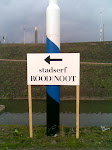Endgame was written by Beckett in 1957 and translated in English in 1958. There are several differences between the French original and the English translation, notably the title and the scene where Clov spots the young boy. The play falls into the category of Theater of the Absurd. It has been critiqued as a play where nothing happens once, as opposed to Waiting for Godot, a play where nothing happens twice. However, Endgame should be viewed instead as a much better version of Waiting for Godot. Many of the same themes exist in Endgame, but they are much denser and they do not require the two act repetition to get their point across. The one major difference between the two plays is that in Endgame the sense of despair is heightened by the fact that the characters are not waiting for anything (other than death, which is is pronounced in both plays).
When Beckett sent the manuscript of Endgame to Alan Schneider, he wrote in a letter that Endgame is "Rather difficult and elliptic, mostly depending on the power of the text to claw." The play is known to have been Beckett's favorite play and its condensed format likely contributed to his favoring it over Waiting for Godot.

.jpg)

